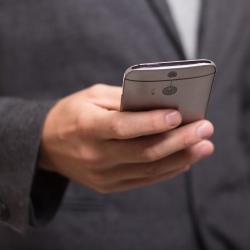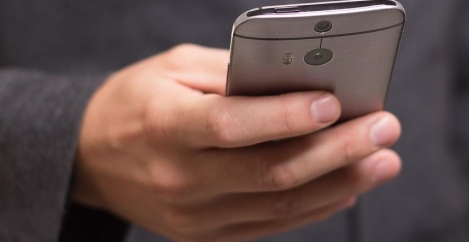October 3, 2024
Nearly two thirds of people say they couldn’t make it through a work day without looking at their phone
 A new poll from instantprint claims only around a third (39 percent) of respondents think they could make it through the day without looking at their phone. This means nearly two in five workers think they could stay focused and avoid their phones entirely, which is an impressive display of self-discipline in an era where we are constantly connected. According to the survey , one-third of respondents (33.33 percent) said they check their phones every time a notification appears, whether it’s a message, social media alert, or app update.
A new poll from instantprint claims only around a third (39 percent) of respondents think they could make it through the day without looking at their phone. This means nearly two in five workers think they could stay focused and avoid their phones entirely, which is an impressive display of self-discipline in an era where we are constantly connected. According to the survey , one-third of respondents (33.33 percent) said they check their phones every time a notification appears, whether it’s a message, social media alert, or app update.
An additional 17 percent admitted to checking their phone multiple times an hour, 15 percent said they check their phones once an hour, and another 15 percent claimed they only check every few hours. Clearly, the habit persists even without frequent alerts. Meanwhile, 15 percent of respondents said they limit phone use strictly to breaks, A small but disciplined 4 percent say they don’t check their phones at all during work hours.
According to the poll, 41 percent of people said they feel pressured to stay connected, responding quickly to emails, Slack messages, or calls. 26 percent of respondents said social media use during work hours negatively affects their output. However, a majority (51 percent) said it doesn’t harm their work, and 22 percent noted it isn’t applicable to them. Opinions appear divided on whether social media is truly a detriment to workplace efficiency.
When asked about their biggest workplace distractions, respondents cited phones, social media, and the general buzz of a busy office as the top culprits. Many workers have their own strategies to combat distractions. The most popular method is listening to music, with 46 percent saying it helps them stay focused. Another 36 percent said they rely on the work-from-home environment to avoid distractions, while 22 percent simply put their phones away. Other strategies include using noise-cancelling headphones (10 percent), working in a meeting room (8 percent), or even heading outside (6 percent) for some quiet time. Some creative solutions include working in a garden pod, closing doors to block out interruptions, or drawing focus from the collective energy of others in the office.
While 38 percent of Brits said they feel more productive working from home, 25 percent admitted that they are more distracted there. Another 29 percent felt it didn’t make much difference either way, while 8 percent said it wasn’t applicable to their situation. 36 percent of respondents said they take regular breaks throughout the day. In contrast, 24 percent prefer long, uninterrupted work sessions. A balanced 39 percent said they mix both strategies, taking breaks when necessary but also enjoying deep focus during extended work periods.
Productivity varies throughout the day, with 43 percent of respondents reporting higher productivity levels in the morning. An equal number said they see no difference in focus between morning and afternoon, while 14 percent find themselves most productive later in the day.
















